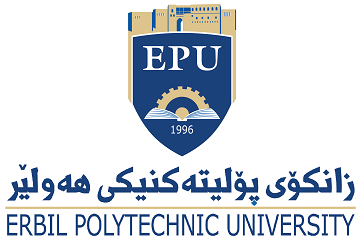Experimental and Theoretical Study of Dew Point Evaporative Cooling System Suitable for Erbil Climate
DOI:
https://doi.org/10.25156/ptj.2018.8.2.205Keywords:
Dew point evaporative cooler, cooling tower and heat exchanger, Dew point temperature, Evaporative cooling.Abstract
Evaporative cooling is an efficient natural process. In this study a dew point evaporative cooling system has been designed, and constructed. A dew point evaporative cooler comprised of combination of multi-stage sensible water to air heat exchangers and evaporative media. In this study the performance of the dew point evaporative cooling system is studied as theoretical and experimental work which is carried out at Erbil Polytechnic University. This work includes the estimation of the effect of impact factors on the system. Based on the conducted experimental and numerical analysis, it is concluded that the performance of the cooling system significantly depends on the; circulating air mass flow rate to the pad, water spray mass flow rate, dry bulb temperature, humidity ratio of incoming air and using return air when evaporative media is having insufficient air. The performance of the system depends on both the effectiveness of water to air heat exchangers and evaporative media. The wet bulb effectiveness of the system is ranged from (45% to 73%) for a single stage. Using return air from cooled zone improves the wet bulb effectiveness. Exhaust humid air can be used in economizer for precooling incoming air. The economizer improves the wet bulb effectiveness of the system from (73% to 93%) with using return air from cooled zone. The ASHRAE guidelines for thermal comfort recommend (20℃ to 24℃) in the winter and (23℃ to 27℃) in the summer and a relative humidity (RH) of (30% to 60%) is recommended.
Downloads
References
G. Heidarinejad, M. Bozorgmehr, S. Delfani, And J. Esmaeelian, “Experimental investigation of two-stage indirect/direct evaporative cooling system in various climatic conditions”, building and environment, vol. 44, pp. 2073-2079, 2009.
L. Elberling,“Laboratory evaluation of the coolerado cooler indirect evaporative cooling unit”, pacific gas and electric company, 2006.
X. Zhao, J. M. Li, And S. B. Riffat, “Numerical study of a novel counter-flow heat and mass exchanger for dew point evaporative cooling”, applied thermal engineering, vol. 28, pp. 1942-1951, 2008.
X. C. Guo And T. S. Zhao, “A parametric study of an indirect evaporative air cooler,” international communications in heat and mass transfer”, vol. 25, pp. 217-226, 1998.
Jun Xiong, Zehua Liu, Chao Wang And Guojie Chen, “Experimental study of the circulation air volume of recirculation evaporative cooling”, icebo2006, shenzhen, china hvac technologies for energy efficiency, vol. 4, pp. 113-130, 2006.
Jiang, Y. and X. Xie, “Theoretical and testing performance of an innovative indirect evaporative chiller”, solar energy, vol. 84, pp. 2041-2055, 2010.
Daniel R. Crum. 1986. Open cycle desiccant air conditioning systems. Master thesis, Wisconsin-madison University.
Zhiyin Duan. 2011. Investigation of a novel dew point indirect evaporative air conditioning system for buildings. Ph.D. Dissertation, Nottingham University.
Kloppers, J.C., D.G. Kroger. 2003. A critical evaluation and refinement of the performance prediction of wet-cooling towers. Ph.D. Dissertation, Stellenbosch University.
Ali Pakari. 2013. Investigation of a regenerative indirect evaporative cooling system. Master thesis, Qatar University.
Yngvi gudmundsson. 2012. Performance evaluation of wet-cooling tower fills with computational fluid dynamics. Master thesis, Stellenbosch University.
Lorenzo Bellemo. 2011. New desiccant cooling system using the regenerative indirect evaporative process. master thesis, technical university of Denmark.
Mu’azu musa. 2008. novel evaporative cooling systems for building applications. Ph.D. Dissertation, Nottingham University
Downloads
Published
How to Cite
Issue
Section
License
Copyright (c) 2023 Bashir Kareem, Riyadh Al Hayes

This work is licensed under a Creative Commons Attribution-NonCommercial-NoDerivatives 4.0 International License.
Authors who publish with this journal agree to the following terms:
1. Authors retain copyright and grant the journal right of first publication with the work simultaneously licensed under a Creative Commons Attribution License [CC BY-NC-ND 4.0] that allows others to share the work with an acknowledgment of the work's authorship and initial publication in this journal.
2. Authors are able to enter into separate, additional contractual arrangements for the non-exclusive distribution of the journal's published version of the work (e.g., post it to an institutional repository or publish it in a book), with an acknowledgment of its initial publication in this journal.
3. Authors are permitted and encouraged to post their work online (e.g., in institutional repositories or on their website) prior to and during the submission process, as it can lead to productive exchanges, as well as earlier and greater citation of published work (See The Effect of Open Access).





 Polytechnic Journal ; A Periodical Open Access Scientific Journal
Polytechnic Journal ; A Periodical Open Access Scientific Journal